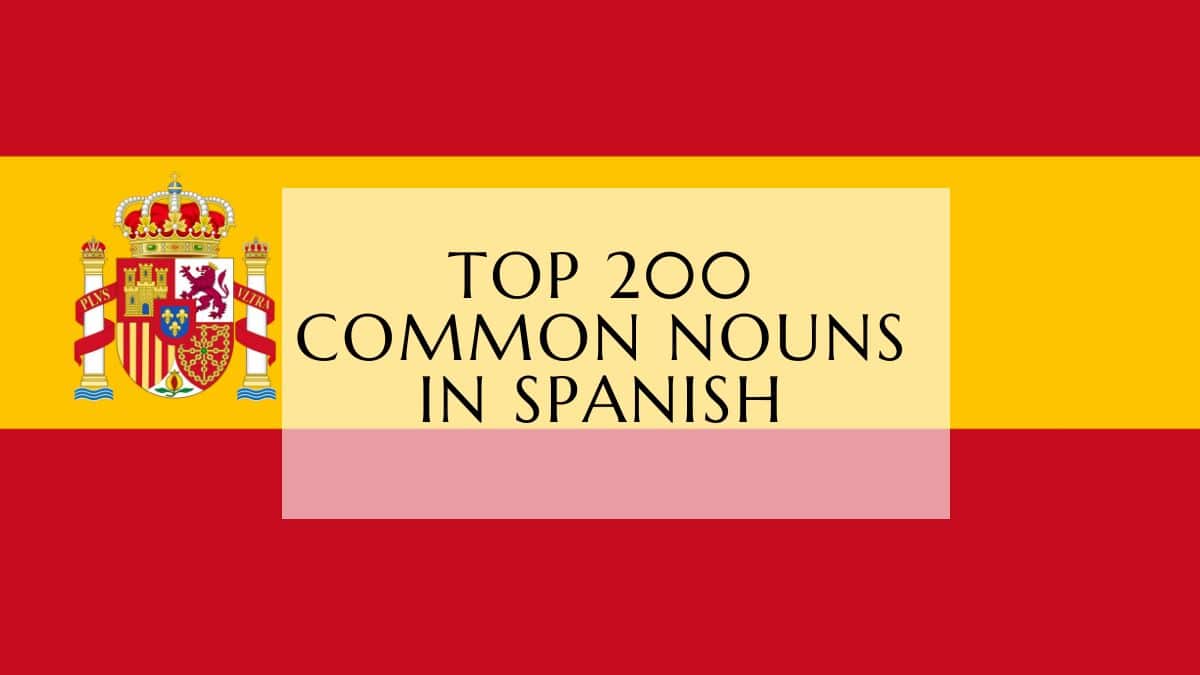I’ve always been drawn to the Spanish language and its power to express deep emotions. From the sound of a mariachi band to the whispers in a telenovela, Spanish paints love with vivid colors. These romantic phrases in Spanish are perfect for wooing someone, thanking a friend, or just exploring its beauty.

Key Takeaways
- Spanish is considered a highly romantic language with over 400 million speakers worldwide
- Learning romantic Spanish phrases can enhance language skills and help express love and appreciation
- Expressions like “Te amo” (I love you) and “Te adoro” (I adore you) are key romantic phrases in Spanish
- Spanish offers a diverse range of ways to say “I love you” for different relationships and contexts
- Romantic Spanish phrases can be used in daily life, letters, and even marriage proposals
Understanding the Language of Love in Spanish
Spanish is known for its passionate and expressive nature. Romance is a big part of Spanish culture, shaping how people talk and act every day. It has a wide range of romantic phrases, just like French.
Why Spanish is Considered a Romantic Language
The Spanish language has a beautiful sound and lots of words. It’s perfect for talking about love and feelings. This makes it great for sharing romantic expressions in spanish.
The Cultural Significance of Romance in Spanish-Speaking Countries
Romance is everywhere in Spanish-speaking cultures. Spanish love sayings and spanish romantic quotes are common in everyday talks. This shows how much they value showing feelings and connecting with others.
Spanish vs. French: A Comparison of Romance Languages
Spanish and French are both romance languages, but they’re different. Spanish is seen as more passionate and has a beautiful rhythm. French, on the other hand, is known for its elegance. Both languages have beautiful romantic expressions that touch the hearts of many.
Essential “I Love You” Expressions in Spanish
Expressing love in Spanish has its own special phrases. “Te amo” (I love you) is the strongest way to say it. “Te quiero” (I want you) shows a deeper love than just liking someone.
Phrases like “Te adoro” (I adore you) and “Eres el amor de mi vida” (You are the love of my life) show a deep, lifelong love. Asking “¿Quieres casarte conmigo?” (Will you marry me?) is the biggest sign of love.
But there are also phrases for not feeling the same way. Saying “Me caes mal” (I don’t like you) or “Déjame sola/solo” (Leave me alone) shows disinterest or rejection. Knowing these spanish romantic messages and frases románticas para enamorar is key to understanding love in Spanish.
From a simple “Me caes bien” (I like you) to a passionate “Tienes todo mi corazón” (You have my whole heart), the right words matter. Learning these love phrases helps connect with Spanish-speaking people on a deeper level.
Romantic Phrases in Spanish for Daily Use
Showing love in Spanish can make daily talks more romantic. The Spanish language has many romantic phrases. These can make your bond stronger and more meaningful.
Casual Romantic Expressions
For fun, flirtatious times, say “Me gustas” (I like you) or “Me caes muy bien” (I really like you). These expresiones cariñosas en castellano show you like someone without being too serious.
Formal Declarations of Love
When you feel deeply, say “Te amo con todo mi corazón” (I love you with all my heart) or “Eres mi razón de ser” (You are my reason for being). These dichos de pasión y romance show strong love. They highlight Spanish’s power to express deep feelings.
Poetic Love Phrases
For poetic moments, try “Eres mi sol en un día gris” (You are my sunshine on a gray day). These expresiones cariñosas en castellano and dichos de pasión y romance add depth to your words.
Spanish has phrases for all kinds of love, from casual to deep. Use dichos de pasión y romance to make your daily talks more beautiful. Let Spanish words express your feelings.
Terms of Endearment and Pet Names in Spanish
In the language of dulces palabras en el idioma de cervantes, terms of endearment and pet names are very special. These spanish love idioms show the warmth and closeness found in many Spanish-speaking cultures.
Terms like “Mi amor” (my love), “Cariño” (darling), “Mi vida” (my life), and “Corazón” (sweetheart) are used in many ways. They can be for romantic partners, close friends, or family. This shows how much emotional expression matters in Spanish.
Pet names in Spanish are also common, with many different options. “Mi cielo” (my sky/heaven), “Mi rey/reina” (my king/queen), and “Bombón” (sweetie) are just a few examples. They show the creative and loving side of Spanish speakers.
Looking into the many dulces palabras en el idioma de cervantes and spanish love idioms helps you understand the language better. It also shows the importance of romance and closeness in Spanish-speaking communities.

“Learning a language involves understanding cultural sensitivities, norms, and traditions.”
If you’re learning Spanish or just want to appreciate its beauty more, exploring these terms is a great journey. It connects you to the heart of dulces palabras en el idioma de cervantes.
Expressing Deep Love and Commitment in Spanish
Spanish offers many ways to express deep love and commitment. It has romantic phrases for long-term relationships, marriage, and forever love. These words capture the essence of lasting devotion beautifully.
Phrases for Long-term Relationships
“Eres mi alma gemela” (You are my soulmate) shows two people meant to be together. “Estamos hechos el uno para el otro” (We are made for each other) highlights a perfect match.
Marriage and Forever Love Expressions
“¿Quieres casarte conmigo?” (Will you marry me?) is a deep proposal. “Nuestro amor es infinito” (Our love is infinite) shows love that knows no bounds.
“Siempre te amaré” (I will always love you) promises love forever. It’s a strong promise of eternal devotion.
These romantic spanish words show the deep love in Spanish. They reflect the importance of finding a soulmate and lasting commitment.
“Te amo” is for intense, lasting love, often for long-term partners. “Te quiero” is for affection, good for family, friends, and romantic partners.
Spanish’s tradition of spanish love poems and romance touches hearts worldwide. It’s a beautiful way to celebrate love’s lasting power.
Related: How To Say I Love You in Spanish
Romantic Compliments and Flattery
Showing your love in Spanish with compliments and flattery is powerful. These words show you value your partner’s looks and qualities. They also show your deep feelings and admiration. Let’s look at some beautiful ways to compliment your loved one in Spanish.
Saying “Te ves hermoso/a esta noche” (You look handsome/beautiful tonight) is a classic. It’s a simple way to say you appreciate your partner’s effort to look good. Another sweet thing to say is “Pareces un príncipe/una princesa” (You look like a prince/princess). It makes your partner feel like royalty, highlighting their beauty.
For something more poetic, try “Tus ojos son mi lugar favorito” (Your eyes are my favorite place). This focuses on a special feature, showing your deep admiration. Saying “Eres lo más bonito de mi vida” (You are the most beautiful thing in my life) shows how much you appreciate your partner’s beauty and their place in your life.
| Romantic Spanish Pickup Lines | Versos Amorosos Hispanos |
|---|---|
| ¿Eres un ángel? Porque pareces caído del cielo. | Are you an angel? Because you look like you’ve fallen from heaven. |
| ¿Crees en el amor a primera vista… o tengo que volver a pasar por aquí? | Do you believe in love at first sight… or do I have to walk by again? |
| Eres tan hermosa/o que me dejas sin aliento. | You are so beautiful/handsome that you leave me breathless. |
The key to complimenting in Spanish is sincerity and passion. Learning these romantic phrases can make your partner feel special. It can also strengthen your bond.

Love Letters and Messages in Spanish
Expressing love in Spanish is truly special. It’s filled with beautiful words that touch the heart. Whether you’re starting a new romance or celebrating years together, Spanish offers many ways to share your feelings. These spanish romantic messages and poesía de amor en español help you find the right words to express your heart’s emotions.
Writing Romantic Texts
Romantic texts in Spanish often use phrases that show longing and tenderness. Sayings like “Te extraño” (I miss you) and “Pienso en ti” (I’m thinking of you) are perfect. They let your loved one know you’re thinking of them, even when you’re apart.
Traditional Love Letter Phrases
- “Eres el dueño/a de mi corazón” (You are the owner of my heart)
- “Cada instante contigo es mágico” (Every moment with you is magical)
- “Besos y abrazos” (Kisses and hugs)
These phrases, used to end love letters, show deep affection. By adding these spanish romantic messages to your own words, you can write a memorable love letter.
“En tus ojos veo el cielo, en tu voz escucho la música de las estrellas.” (In your eyes, I see the sky; in your voice, I hear the music of the stars.)
This poetic line by Gerardo Diego shows how Spanish can make love and romance even more special. Using poesía de amor en español, you can create messages that deeply touch your loved one.
Regional Variations of Love Expressions
The Spanish language is full of different ways to say “I love you.” From the passionate words in Latin America to the subtle ones in Spain, each region has its own special way of expressing love. These cultural differences make Spanish love phrases truly fascinating.
In Latin America, saying “Te extraño” (I miss you) is a heartfelt way to show you’re thinking of someone. In Spain, they prefer “Te echo de menos,” which has a slightly different meaning. These small differences show how love is expressed differently in different places.
Terms of endearment also change from country to country. In Mexico, “Mi amor” (my love) and “Mi cielo” (my heaven) are favorites. But in Argentina, “Mi vida” (my life) and “Mi corazón” (my heart) are more common. These differences highlight the rich cultural background of Spanish.
| Country | Common Love Expressions |
|---|---|
| Mexico | “Mi amor”, “Mi cielo” |
| Argentina | “Mi vida”, “Mi corazón” |
| Spain | “Te quiero mucho”, “Te aprecio mucho” |
| Puerto Rico | “Te quiero un pila’o” |
| Colombia | “Te quiero un chin de arroz con coco” |
These regional differences are very important. They show the unique history, traditions, and values of each Spanish-speaking area. They create a beautiful collection of romantic phrases in spanish and spanish love phrases that are both captivating and meaningful.

From Mexico’s passionate words to Argentina’s poetic ones, and Spain’s subtlety, the variety of romantic phrases in spanish and spanish love phrases shows the beauty of the Spanish language. Learning about these differences can help us appreciate the language of love even more.
Common Mistakes to Avoid When Using Spanish Love Phrases
Learning to express love in Spanish is more than just words. It’s about understanding the culture and when to use certain phrases. Be careful not to make these common mistakes to show your love in the best way.
Cultural Considerations
Spanish love phrases can vary greatly from one place to another. What’s sweet in one country might be too formal or even wrong in another. Know the cultural norms of the Hispanic community you’re talking to to avoid misunderstandings.
Context and Timing
When and where you say “I love you” in Spanish matters a lot. Don’t use very formal or strong phrases in casual situations. They might seem fake or too much. Also, pick the right level of love and commitment for your relationship stage.
Here are some tips to help you with Spanish love phrases:
- Pay attention to how different places use romantic expressions in spanish.
- Choose the right level of formality or informality for the situation and your relationship.
- Know the difference between saying “te quiero” (I like you) and “te amo” (I love you).
- Ask a native speaker or a trusted language source to make sure your words are right.
By keeping these tips in mind, you can express your love in Spanish with confidence and meaning.

| Common Mistakes | Explanations |
|---|---|
| Incorrect pronunciation | Many learners struggle with Spanish pronunciation, like the sounds of R, Ñ, J, and H. |
| Trilling the letter R | Not trilling the R correctly is a common error that can confuse native speakers. |
| Silent H and unique Ñ sound | In Spanish, H is usually silent, and Ñ sounds like ‘canyon’ or ‘onion’. |
| Varying J sound | The sound of J changes between Latin American Spanish and Spanish from Spain. |
| False friends | Words that look or sound similar in English but mean different things in Spanish can cause mistakes. |
Conclusion
The world of romantic phrases in Spanish is full of deep emotions. It ranges from passionate words to loving actions. This guide has shown how the Spanish language is full of romance, highlighting its cultural importance and many ways to show love.
If you want to connect more with someone who speaks Spanish, learn these phrases. They can change how you communicate and make your relationships more special. By using these phrases correctly, you can build strong bonds and add magic to your interactions.
The Spanish language is amazing because it captures human feelings so well. Using these romantic phrases every day will not only improve your Spanish. It will also help you appreciate the rich culture of the Hispanic world more. So, dive into the language of love and watch your relationships grow more romantic and passionate.
FAQ
What are some common romantic phrases in Spanish?
How does Spanish compare to French in terms of romance?
What are some common terms of endearment in Spanish?
How can learning romantic Spanish phrases be beneficial?
Are there any regional differences in Spanish love expressions?
What are some common mistakes to avoid when using Spanish love phrases?
Oualid Cheddadi is the founder of Lingualid, a platform that inspires independent language learners worldwide, regardless of the language they are learning. The name “Lingualid” is derived from the Portuguese word for “language,” “língua,” and the last three letters of Oualid’s name, “Lid.”



